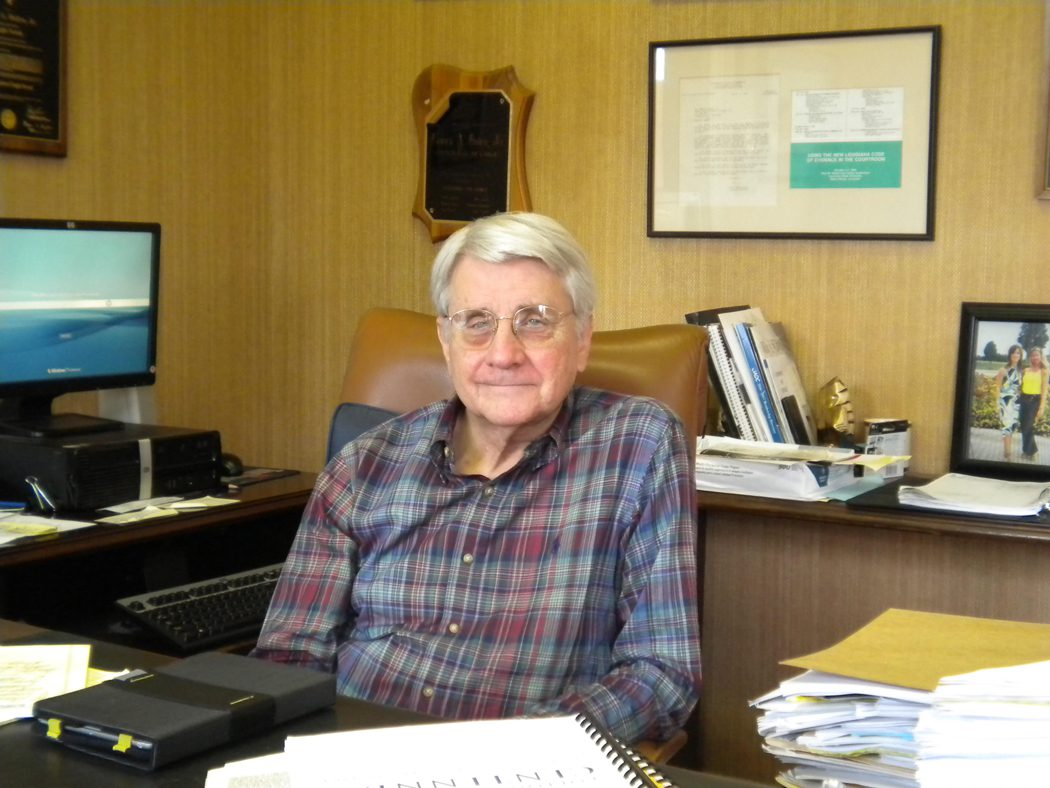By Michael D. Wynne
One of the many fascinating people that I have met over the years in central Louisiana who are devoted to the preservation of our wonderful history is Jay Bolen of Alexandria. Jay is known for so many accomplishments in so many different fields that a
book could be written on his life and his devotion to the central Louisiana people itself.
But in these few words of this column, we will talk mostly about his preservation research and work on our history.
For a little background information, Jay is a native of Alexandria and a proud graduate of Bolton High School. While working towards becoming an Eagle Scout, he learned much about how our system of government works as well as much about his
community, especially through the earning of merit badges.
After graduating law school, he became a member of the “J.C.s” (Junior Chamber of Commerce) which Jay credits with the beginning of his service in government and in giving back of his time and talents to others. In the late 1960s, Jay was appointed by former Mayor Ed Karst to conduct a study of possibly changing Alexandria city government. Jay eventually recommended that Alexandria change to a City Manager form of government. He became well known as a promoter and the “father” of a Mayor-Council type of government which Alexandria still uses today. This lead to his two term councilman-at-large service to our city council. One of his proudest accomplishments is helping alter the course of I-49 interstate highway through the city of Alexandria to benefit Alexandria. Jay said that his cumulative work with the Boy Scouts, the J.C.s, and the Alexandria City Council laid the
foundation for his interest in history.
Jay is a voracious reader of history which is his first love. “When you become involved in the community and read history, this tends to make you want to write about it,” he says.
Having served on the local Boy Scout council, he gained access to important older scouting materials. This lead Jay to start conducting interviews with older Boy Scouts which further encouraged him to research and find other materials on the history of Boy Scouting in central Louisiana. Jay’s first book was published in 2009 highlighting this never before covered history. In the great national debate in historical circles as to whether people or events control the course of history, Jay credits the many impressive people of CenLa over the years with making Boy Scouting in CenLa the success that it is today. Jay speaks with a degree of reverence about early Scout leaders, like Pat Sullivan, who helped obtain and develop Camp Attakapas for Boy Scouting. Jay has donated all of his copies of the history of CenLa Boy Scouts to the local Boy Scout council where they are available to be purchased today.
Jay then decided to tackle a book on the history of Bolton High School. Like the Boy Scout book, Jay was on the Alumni Board of Bolton High School where he also accumulated copies of many historical research materials. This also lead to conducting
interviews with old alumni which he felt was integral to “fleshing out” his very interesting book that was produced on the centennial of Bolton High School several years ago. Copies of this book are available for purchase from Bolton High School.
Jay’s research into the Rapides School Board records for the Bolton High book lead to his interest in the whole history of the Rapides Parish school system. This latest subject was Jay’s biggest historical project yet. Jay uncovered the origins of the first
public schools that were first created just after the Civil War. Before the war, the only schooling that was available was done by tutors in the rich planter class homes or away at far off boarding schools. “People assume that we always had public schools, but it took a long time for the 19th century parish police jury and state government to award any money to actually start the public school system.” Jay was able to find that the first true public school was started in an old house that is now the site of the Rapides Parish courthouse.
Even with all of Jay’s monumental work into the Rapides Parish School system, there is still much research that needs to be done, especially on the origin of the African American school system here. Jay credits Charles Roberts as starting the first
private black schools here in the late 1800s. Jay’s original work into the history of the school system was first published in a series of monthly articles in the “Senior News.” He is now updating his work to be published in book form and is asking the public for copies of photos of any early schools in Rapides Parish that the public may have.
In speaking of his efforts to write history, Jay feels that the fundamentals to success for a historical writer are (1) a desire to gather the research materials, (2) a desire to write and, finally, (3) being able to just sit down at a computer keyboard, overcome
writer’s block and just begin to write.
Jay’s latest two books are important works. “;Memorializing A Civil War Soldier” is a thought-provoking book on how we should consider the Civil War foot soldier. “The Battle For Public Education In Rapides Parish,” his latest work, is a must for any person in Rapides Parish to read to understand what is going on in education here. Jay is now working on another book on (Boy) Scouting in CenLa, one of his long time loves.
Jay has been a great success with everything that he has worked on and the people of central Louisiana should show their thanks to him for all that he has done for us.













